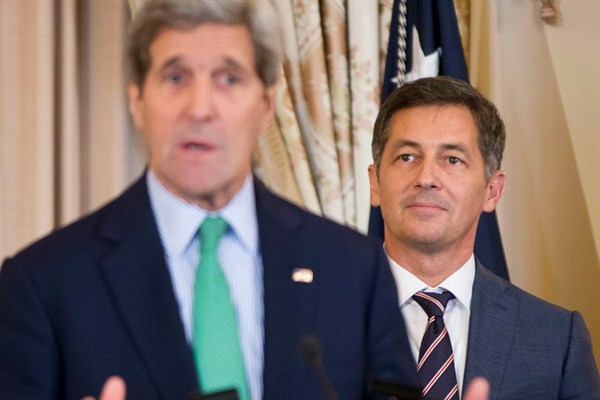A year ago this month, efforts to use high-profile diplomacy in the service of global LGBT rights appeared to be gaining considerable momentum. At the United Nations, the Human Rights Council had selected Vitit Muntarbhorn of Thailand to serve as the first independent expert tracking violence and discrimination based on gender and sexual identity. And in Washington, Randy Berry was well into his second year as the State Department’s first special envoy for the human rights of LGBTI persons.
To mark the completion of Berry’s first year in that position, the Human Rights Campaign praised him as “a game changer for LGBT rights internationally” and called on future U.S. administrations “to ensure that his position is firmly established for many years to come.” With Hillary Clinton heavily favored to win the presidency, many assumed that was exactly what would happen.
Things are looking different today, and not just because of Clinton’s defeat at the hands of Donald Trump. Earlier this month, Muntarbhorn announced his resignation from the U.N. post, citing family and health reasons. Although the U.N. is moving quickly to identify a replacement to serve out the remainder of his three-year mandate, there is a general sense that Muntarbhorn’s departure is a blow. He combined a deep knowledge of the U.N. system—having worked on inquiries into Syria and Cote d’Ivoire, and as special rapporteur for human rights in North Korea—with a solid grounding in LGBT issues. And he had effectively weathered attacks on the LGBT role from African states and other opponents.

